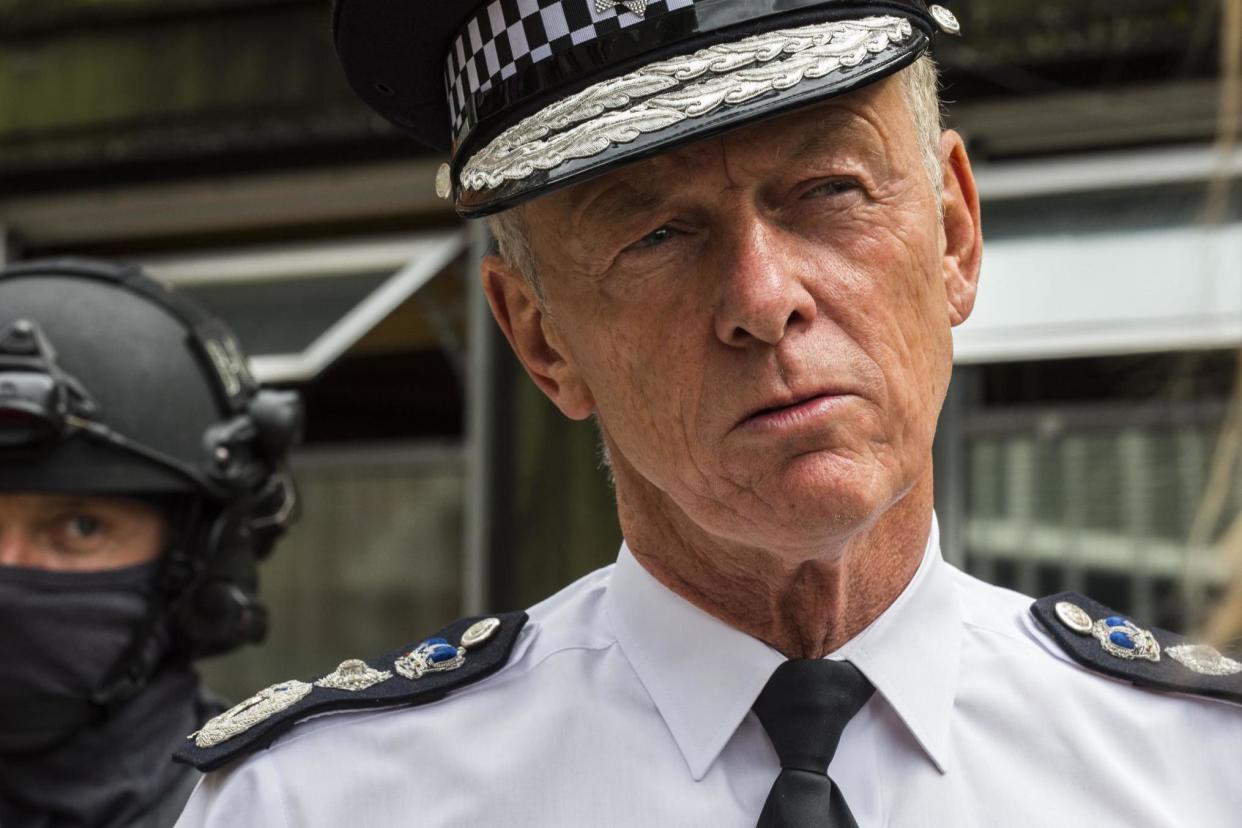Ex-Met chief Bernard Hogan-Howe joins Standard's 'vital' investigation team to target modern slave traffickers

Former Met chief Sir Bernard Hogan-Howe is to lead the Evening Standard’s fight against modern slavery.
Sir Bernard will use the experience and contacts from more than 30 years of front-line policing to agitate for concrete changes that will make it harder for human traffickers and gang masters to operate in the UK.
He will work with journalists, campaigners and business and political leaders, as well as our partners at the Independent Anti-Slavery Commissioner, to deliver change in five areas: closing businesses that use slave labour, giving survivors a second chance, encouraging readers to report cases, helping those trapped to come forward and campaigning for new laws.
“This investigation is vital,” said Sir Bernard, 59, who led the Met from 2011 to last February. “Government and societies must become more aware of this issue.”
What we will do
During this investigation Sir Bernard and the Evening Standard will be working to:
1 Help to force the closure of businesses in London that use slave labour.
2 Join forces with companies to give survivors of slavery a second chance.
3 Encourage our readers to report potential slavery cases to the right authorities.
4 Help those trapped in slavery in London know where they can turn for help.
5 Campaign for new policies and laws to crack down on slavery.
He revealed that a trip to the Vatican had made him focus on the evil of modern slavery. Kevin Hyland, now the Independent Anti-Slavery Commissioner, was then in charge of the police’s anti-slavery department. He had built links with the Catholic church to enable both to help each other fight the problem.
Sir Bernard said: “We heard from two individuals. One was a woman who’d been trafficked into the UK, had her passport taken away and been forced to work as a prostitute. And then a man who’d been in forced labour and was sleeping on a floor, and didn’t even realise it was terrible. The more you hear of the individual stories, the more you realise what a huge problem this is, and it’s happening right under our noses.”
How to spot the signs of slavery
Be curious
Is someone always watching them?
Do they have injuries that appear to be the result of an assault?
Will they not look you in the eye or seem frightened?
Do they always wear the same few clothes?
Are they living in dirty, cramped or overcrowded condition?
Do they look starving or neglected?
Do they live and work at the same address?
Are they being controlled by a ‘boyfriend’?
Do they have ID documents?
Are their travel arrangements unusual?
The Evening Standard’s anti-slavery investigation launched last week and has won the backing of the Prime Minister, Labour leader Jeremy Corbyn and charity and business leaders.
Sir Bernard wants to make businesses more accountable if they use slave labour and support the victims. He said: “It’s difficult to know whether the problem is getting better or worse, because nobody has precise figures.”
Sir Bernard believes that law enforcement has an important role to play in helping victims come forward. “The victims may not dare approach the authorities, so we have to help them realise that they won’t be judged harshly. It’s the traffickers, who are making money through this terrible exploitation, who need to be prosecuted.”
The Modern Slavery Act came into force during Sir Bernard’s time as Met Commissioner. He added: “We invested more than other departments to fight modern slavery, but I would never say we couldn’t have done more. It’s a horrific trade. We can all do more.”
Take action to end slavery by going to the Evening Standard's online activity platform.

 Yahoo News
Yahoo News 
